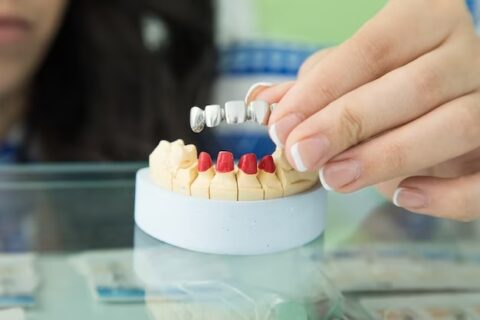
How to Prevent Denture Damage and Extend Their Lifespan
Are you tired of constantly replacing your dentures or dealing with annoying repairs? Don’t worry, you’re not alone! Many people struggle to maintain the longevity of their dentures. But fear not, there are simple steps you can take to prevent damage and extend their lifespan. In this blog post, we will explore some helpful tips that will keep your dentures in top condition for years to come. So sit tight and get ready to discover how easy it is to care for your dentures like a pro!
Introduction to Dentures & How To Prevent Them From Damage
Dentures are an important part of many people’s lives, but they can be delicate and require special care. Here are some tips to prevent damage and extend the lifespan of your dentures:
-Handle with care: Dentures are fragile and can break if dropped. Always handle them with care and put them down gently.
-Clean daily: Be sure to brush your dentures every day to remove food debris and plaque. You should also soak them in a denture cleaning solution overnight.
-See your dentist regularly: It’s important to see your dentist for regular checkups and cleanings, even if you have dentures. They can spot any potential problems early on and help keep your mouth healthy.
Causes of Damage to Dentures
Dentures are designed to last for many years, but they can be damaged if they are not cared for properly. The most common causes of damage to dentures are:
1. Chewing hard foods: Dentures can crack or chip if you bite into hard foods such as candy or nuts. It is important to bite into these types of foods carefully, using your front teeth instead of your back teeth.
2. Dropping them: Dentures can break if they are dropped on a hard surface. Be careful when handling your dentures and always set them down gently.
3. Not cleaning them properly: Plaque and bacteria can build up on dentures if they are not cleaned regularly. This can cause staining, bad breath, and gum disease. Be sure to brush your dentures at least once a day and soak them in a denture cleaner overnight.
4. Wearing them 24/7: It is important to take your dentures out at night so that your gums can breathe. Wearing them constantly can also cause sores and irritation.
5. Using harsh cleaners: Harsh chemicals can damage the plastic or metal components of your dentures. Stick to gentle, mild cleaners specifically designed for dentures when cleaning them.
Signs and Symptoms of Damaged Dentures
If your dentures are damaged, it’s important to identify the signs and symptoms so you can seek proper treatment. Here are some common signs and symptoms of damaged dentures:
-Changes in the fit of your dentures. If your dentures no longer fit as well as they used to, it could be a sign of damage.
– Cracks, chips, or breaks in the denture itself.
– Sharp or rough edges on the denture.
– Dentures that are loose or don’t stay in place.
– Pain or discomfort when wearing dentures.
Conclusion
We hope this article has provided you with some valuable tips on how to extend the lifespan of your dentures, and how to prevent damage from occurring. Taking care of your dentures is an essential part of maintaining good oral health and ensuring that they look as natural as possible. With proper care and maintenance, your dentures can last for many years, giving you a beautiful smile for years to come.


